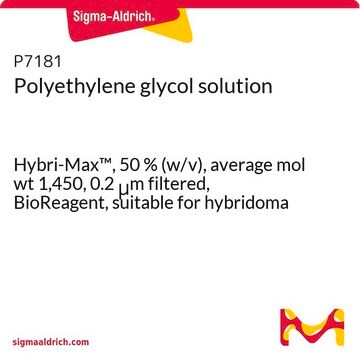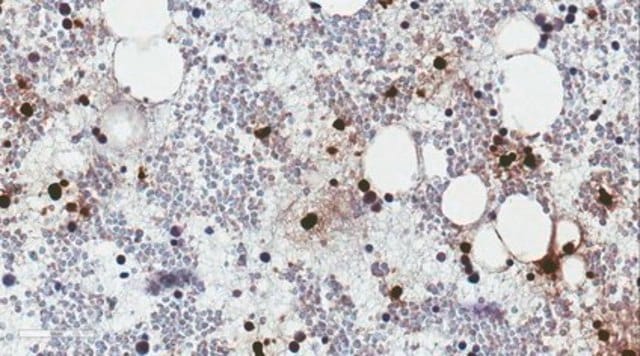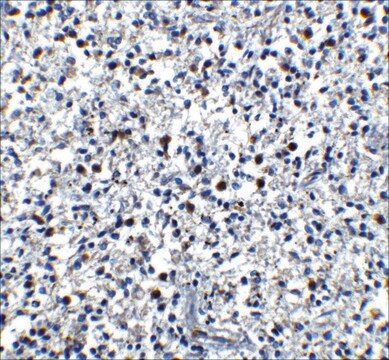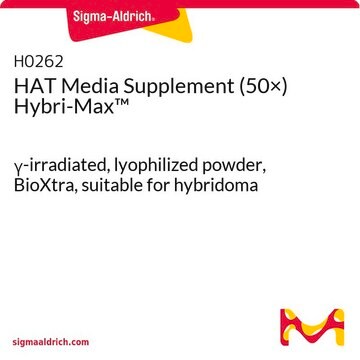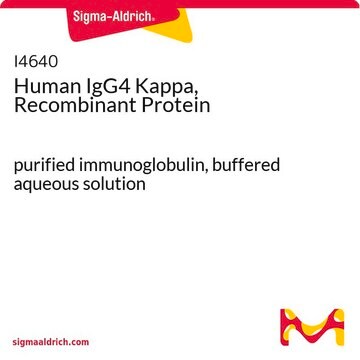MABN696
Anti-G6PD Antibody, clone 2H7
ascites fluid, clone 2H7, from mouse
Synonyme(s) :
Glucose-6-phosphate dehydrogenase, G6PD
About This Item
Produits recommandés
Source biologique
mouse
Niveau de qualité
Forme d'anticorps
ascites fluid
Type de produit anticorps
primary antibodies
Clone
2H7, monoclonal
Espèces réactives
human
Technique(s)
flow cytometry: suitable
immunohistochemistry: suitable
western blot: suitable
Isotype
IgG1
Numéro d'accès UniProt
Conditions d'expédition
wet ice
Modification post-traductionnelle de la cible
unmodified
Informations sur le gène
human ... G6PD(2539)
Description générale
Immunogène
Application
ELISA (Direct) Analysis: A 1:10,000 dilution from a representative lot detected G6PD with recombinant G6PD protein antigen.
Flow Cytometry Analysis: A 1:200-400 dilution from a representative lot detected G6PD in non serum starved Jurkat cells.
Optimal working dilutions must be determined by end user.
Neuroscience
Developmental Neuroscience
Qualité
Western Blotting Analysis: A 1:500-2,000 dilution of this antibody detected G6PD in HeLa, MCF-7, Jurkat and K562 cell lysates.
Description de la cible
Liaison
Forme physique
Stockage et stabilité
Handling Recommendations: Upon receipt and prior to removing the cap, centrifuge the vial and gently mix the solution. Aliquot into microcentrifuge tubes and store at -20°C. Avoid repeated freeze/thaw cycles, which may damage IgG and affect product performance.
Remarque sur l'analyse
HeLa, MCF-7, Jurkat and K562 cell lysates
Clause de non-responsabilité
Not finding the right product?
Try our Outil de sélection de produits.
Code de la classe de stockage
12 - Non Combustible Liquids
Classe de danger pour l'eau (WGK)
nwg
Point d'éclair (°F)
Not applicable
Point d'éclair (°C)
Not applicable
Certificats d'analyse (COA)
Recherchez un Certificats d'analyse (COA) en saisissant le numéro de lot du produit. Les numéros de lot figurent sur l'étiquette du produit après les mots "Lot" ou "Batch".
Déjà en possession de ce produit ?
Retrouvez la documentation relative aux produits que vous avez récemment achetés dans la Bibliothèque de documents.
Notre équipe de scientifiques dispose d'une expérience dans tous les secteurs de la recherche, notamment en sciences de la vie, science des matériaux, synthèse chimique, chromatographie, analyse et dans de nombreux autres domaines..
Contacter notre Service technique
